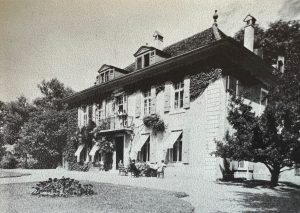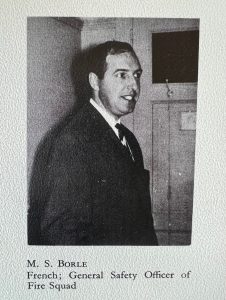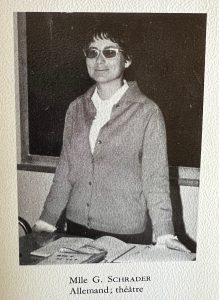Fireman Phil came to Marble Elementary School. We first-graders were gathered in the school gym, seated cross-legged on the floor. What makes a fire? How do you stop it? Do you throw water on oil (no!)? This is a fire extinguisher. If you are on fire, don’t run–drop and roll. It’s been over 60 years and I still remember.
When I was 13, Hannah came up with the brilliant idea of lighting perfume (okay, probably eau de cologne) because it made such a cool blue flame. We shared the dorm room where she was conducting her experiment that evening with a couple of other girls. Ever helpful, and ignoring the prevention part of my first grade fire lesson, I suggested it would be cheaper to light nail polish remover. Someone came up with a bottle and doled out a few drops, which lit beautifully. She then decided to add a bit more, carefully dripping liquid over the flame, which promptly jumped back into the hovering bottle. Aaah! She flung the bottle out of her hand and across the room.
In an instant, the room was alight with bits of burning polish remover that had scattered onto the floor, the bed, the desk. Worse, some of the places where it landed were starting to burn underneath. Dorothy ran to the bathroom sink to get a cup of water. Hannah was useless and agitated. That wasn’t going to help. I grabbed the small area rug and started madly beating out the flames, smothering them. Every time one spot was extinguished, another behind me flared up, but after a frenzy of rug beating, everything was finally out.
We sat in the aftermath looking at each other, hearts racing, the smell of charred paper and burned acetone in the air, bits of carbon on the surfaces of the room. That was really close. It was really bad. Our frightened eyes spoke the truth that we would never do anything like that again, ever.
After a few minutes, we heard footsteps on the stairs leading up to our attic room. Mademoiselle Schrader, the dorm resident supervisor, with her thick yellow-tinted glasses. She spent most of her time entertaining M. Borle in the suite two levels below–we had probably interrupted them. She jerked open the door and we all looked at her with surely guilty looks. She knew something was afoot, but somehow missed the clues. Hannah bravely spoke up and assured Mlle. that everything was just fine, nothing to see here. Well then, (after a few stern piercing eye sweeps over the miscreants) everyone go back to your rooms and go to bed, right now!
Who could sleep? As I lay there, relieved that I had remembered enough to beat out the fire, I whispered to myself, “Thank you, Fireman Phil.”
Postscript: I see in my yearbook picture that M. Borle is listed as the “General Safety Officer of the Fire Squad”. Good thing he didn’t follow Mlle. Shrader up the stairs!










